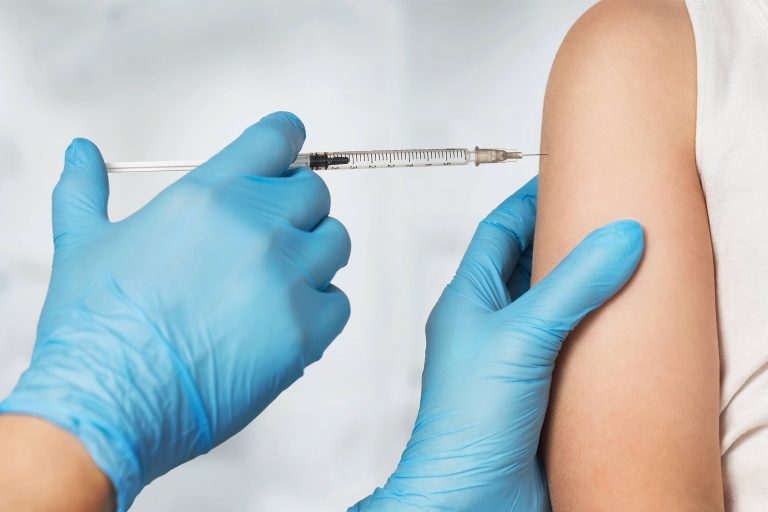Our Approach To Treating Acne Scars
There are many different types of acne scars and marks and every individual has a different combination of scars. It's important that treatment is catered specifically to your unique skin condition.
What are acne scars?
Acne scars typically occur in the form of permanent depressions or indentations in your skin. Scars can sometimes be elevated as well. They result in textural changes of the skin.
What Causes Acne Scars?
Acne scars are often a result of the inflammation your skin undergoes when acne is formed. The inflammatory process damages the skin tissues in your skin. When the skin is damaged, a scar is left behind in the deep layer of the skin, known as the dermis. Often, this scar is contracted or does not contain enough collagen fibres, leading to an irregularity or depression in the skin. They are often worsened if you are prone to picking or popping your pimples.
If acne is treated in its early stages, it is possible to avoid acne scars completely.
What are the different types of acne scars?
Not all acne scars are the same. There are a variety of types of scars, each of which requires a different or customized procedure to treat effectively. It is common to have a combination of a few types of scars.
Ice Pick Scars
Ice pick scars have a narrow opening but are often deep acne scars in the skin.
Box Car Scars
Box car scars are relatively shallow scars and have rather rectangular, well-defined edges of the openings.
Atrophic/ Rolling Scars
Rolling scars appear as broader depressions. These scars don’t have well-defined edges but rather, often have rounded or sloping edges.
Hypertrophic Scars/ Keloid Scars
These scars are elevated. They appear as lumpy scars that remain after acne has healed.
This is because after the skin is inflamed, fibrous scar tissue will form over the wound to repair the wound site. Sometimes, these scar tissues grow excessively, resulting in an elevated bump over the original wound.
Acne Marks
Post Inflammatory Erythema
Post Inflammatory Erythema usually appears in the form of pink or red marks that are a result of a severe acne outbreak.
Post Inflammatory Erythema often develops due to the dilation or damage of small blood vessels (called capillaries) near the surface of the skin. They are generally caused by inflammation and trauma, such as picking or popping pimples.
Post-Inflammatory Hyperpigmentation
Post-inflammatory hyperpigmentation is often seen as dark spots on the face after acne has resolved. These marks are different from Post Inflammatory Erythema. They appear when the skin is healing, when the red marks fade away to leave a variety of discolouration spots that can be pink, red, brown or black.
Post-inflammatory hyperpigmentation is generally caused by trauma to the skin such as burns, excessive picking, rubbing, or irritation to the skin caused by chemicals. This results in the overproduction of melanin, resulting in the discolouration of the skin.
Acne Marks vs. Acne Scars
Acne marks are commonly mistaken for acne scarring due to the discolouration and redness they appear in. After an inflammatory acne outbreak, it is common to have a variety of marks and scars left behind.
What are the differences between acne marks and acne scars?
Although they are easily confused, acne marks and acne scars are different.
Acne scars are often permanent depressions or elevations on your skin. They can be categorized into atrophic or hypertrophic scars, and they occur in a variety of shallow scars to deep scars. For example, there are ice pick scars, boxcar scars, rolling scars or keloid scars.
On the other hand, acne marks are generally not permanent. However, they can be extremely stubborn and last for weeks or months. Treatment options can help to significantly reduce the time needed for these marks to fade.
Acne Scar Treatment in Singapore
Possible treatments include:
Chemical Peels fade scars by smoothing the surface of the skin. The choice of peel will depend on the kind of acne scar and its severity. Other factors will include your skin tone and skin sensitivity.
Depending on the type of acne scars, one can consider the use of laser treatments to treat overactive sebaceous glands to reduce acne and the scarring. Picosecond laser, Fotona are some examples which may suit you.
By creating controlled micro-injuries to the skin, this treatment seeks to stimulate natural wound healing and collagen production in the treated area, breaking down the scar tissue. Radiofrequency energy is delivered to the targeted skin to promote new collagen production.
To reduce the acne scars, one seeks to stimulate collagen production and healing of skin through PN/ PDRN Injectables. Popular brands include Rejuran and Plinest but you are likely to require more than just PN/ PDRN injectables for better results.
The final treatment plan will depend on the type of acne scars. It may be likely that a combination of treatments will be required.
FAQ About Acne Scar Treatments in Singapore
-
Are acne scars permanent?
The permanence of your acne scars depends on the type of acne scars you have. Some shallower scars or marks may fade away over a period of time. They can also be treated simply with some over the counter topical cream applications for faster and more effective removal.
However, deep acne scars such as ice pick or rolling scars are generally permanent and require laser or other acne scar removal treatment options. Book a consultation with our doctors as they are best equipped to counsel you on the most effective acne scar treatment that is best for the types of scars you have.
-
How much improvement can I expect to see in my scars?
Results vary since every individual has different acne scars, skin conditions and genetics.
-
Can acne scars be prevented?
Acne scars generally root from problems with inflammatory acne. To prevent acne scars from forming, it is best to treat the root of the problem. Acne can sometimes be treated with various home remedies and over the counter medication. However, if your acne problems are not resolved by these options after months, it is wise to seek a consultation with your doctor.
At Fusion Medical, we have a variety of acne treatments available. By seeking early intervention for your acne, you can prevent the formation of scars, and save on the need for future acne scar removal treatments.
Dealing with acne scars and marks can be frustrating and distressing. At Fusion Medical, we offer treatment options that are customisable to fit your specific skin condition, genetic, and medical history.
Every individual has different skin conditions, genetics, and medical history. Book a consultation with our doctors and they will customise an effective acne scar removal treatment plan that caters to your specific needs.
About Fusion Medical
Fusion Medical was set up in the year 2015. Our founders, being passionate about offering one-stop quality healthcare services at affordable rates, decided to set up an Executive Medical Centre equipped with diagnostic and imaging equipment under one roof to provide convenience to our patients. Diagnostic and imaging equipment include X-Ray, Ultrasound, Treadmill, Echocardiogram, Tonometry, Mammogram, Retinopathy and Bone Densitometry.
Visit Us
Start your skin health restoration journey with us today!
Fusion Medical @ Wheelock
501 Orchard Rd #04-11, Singapore 238880
Mon-Fri :8:30am – 5:30pm
Sat :8:30am – 1:00pm
Sun / PH :Closed
Fusion Medical @ Fusionopolis
1 Fusionopolis Link, #01-05 Nexus
@ One-North , Singapore 138542
Mon-Fri :8:30am – 5:30pm
Sat/Sun / PH :Closed
Why Choose Fusion Medical
We Make Things Easy For You
Our clinic is centrally located in Wheelock Place, giving you easy access to quality healthcare services whenever you need it. Appointments are easy, too. Request an appointment online or call us.
Female Doctors Who Understand You
Our female doctors offer a broad range of screening and medical services, personalised just for you. Doctor-patient relationships can last a lifetime, and we believe that it is important to have a doctor who truly understands you. We strive to do the best we can to make you feel comfortable.
Fully Equipped Clinic
We are committed to meeting your specific needs at our clinic. Our clinic is fully equipped with diagnostic and imaging equipment to provide one-stop convenience for you.









